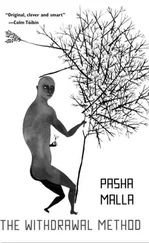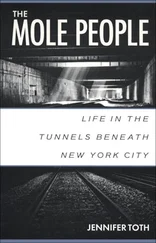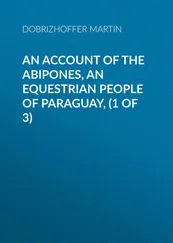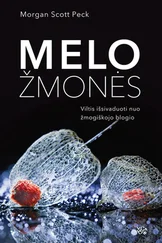Debbie killed the flashlight. Motes of colour swam before her eyes, she plugged her ears and blinked at the sparkling dark. Gradually she was able to pick out industrial lamps strung along extension cords ringing the room. Beyond their alcoves of weak light the room was a fathomless smudge. Slowly the shadows took shape, they seemed to swell and pulse and writhe — people.
Were they dancing to this tuneless music that rattled Debbie’s bones inside her skin? There were people around the periphery too. In one of the nearby light nooks a hooded figure held out a forearm to someone else dragging a piece of glass across the skin: the blood swelled in black bubbles, wiped away with a rag. They noticed Debbie watching, turned toward her, faces just shadows inside their hoods.
Where was Calum, he was gone. Debbie squinted. How many people were there? Thirty, forty, hundreds, she couldn’t tell. And even with her ears plugged the music throbbed inside her head. Though this was hardly music, no instruments, no one was singing. It was noise, yet somehow immediate and intimate, even alive. It seemed, thought Debbie, to billow mistlike from the room itself and swirling to consume everyone within.
Tentatively she took her fingers out of her ears, let the sound come screaming in, tried to make sense of it. The whining through the middle range was reminiscent of the staticky screech of a distorted guitar, the pulse beneath it seemed percussive, but there was no sign of either guitars or drums. Just people, ringed by a dozen or so megalithic towers of speakers and amps, wires webbed overtop in a ropy ceiling. Inside these towers the crowd milled and shifted — slow, almost purposeful.
Calum stood at the edge of the cipher, backlit, talking to a girl wearing what appeared to be a glove for a hat.
Debbie caught his eye and waved. He ignored her, kept talking to the girl. But then he eyed Debbie again and finally came over and slouched in front of her like a child humouring a parent he wants to escape.
What is this music? she yelled. What do you call it?
Calum pulled away, looked around, leaned in again, didn’t speak.
Is there a band? Where are they?
Calum’s lips moved but Debbie heard nothing.
The band, Debbie screamed, and placed her ear to Calum’s lips.
There’s no band, he said. We’re the band. He gestured above, at the network of wires overtop the dancefloor. Those are sensors. The sound comes from us, moving around. However we move is whatever we hear. You hate it, don’t you?
He seemed almost gleeful. Cal, said Debbie, why did you bring me here?
Why? So you could see.
But there’s nothing to see!
A sour look Debbie couldn’t quite read passed over his face, frustration or regret. He muttered something and drifted away, back toward the girl in the odd hat — not a hat but hair, Debbie realized, palming her skull.
This girl spat, said something to Calum, who looked at Debbie, quickly, then away. The urge to calm whatever she had unsettled fluttered up, but the girl took Calum by the hand, moved out of the light and into the crowd.
And Debbie was left alone with the music. It was horrible — like a hand over her mouth, like hands on her throat, like hands tightening on her shoulders and stomach and thighs. It stabbed into her ears, filled her face, centipedelike went scuttling down her spine, spread pulsing back up into her chest, expanded, tingled all the way to her fingertips and out again, into the world, as shreds of exhausted light. She tried to find something in it, to trace some melody or beauty. But she couldn’t. She didn’t understand.
Calum and the girl had vanished. The two who’d been cutting each other were gone too, all that remained in the lamplight was a shard of bloodied glass. Everyone was inside the circle now. Except Debbie, who groped toward the tunnel, found its opening, entered, the walls rough as gravel. She remembered the flashlight: it strobed wildly ahead of her as she went splashing through puddles that hadn’t been there on the way in, the cavernous hall chased her with its screams.
After a time the music faded to a distant drone, farther along the only sounds in the tunnel were Debbie’s footsteps and the rasp of her breath. She leaned against one of the walls: moist, almost spongy, she recoiled from it shivering. Behind her and ahead, the flashlight shone into blackness. Hello? she called. Her voice didn’t even echo, just seemed swallowed by the dark.
She couldn’t go back, not to what was there. And so she continued on — the corridor sloped down, leading her even deeper beneath the city. She turned back and there was the music, faint but screeching. So down again she went. What was this lightless place, where would it take her, the smell was earthy, the floor became dirt and the flashlight wobbled over it, was it fading? A knot bobbed in Debbie’s throat, she blundered on.
And up ahead was a shaft of light.
Debbie raced to it: a grate, high above, and a ladder leading up. She pocketed the flashlight and climbed. The grate swung open — the street, and air, sweet and cool, and the night sky, the vast burnt skin of it bruised by citylights.
And people: a crowd of students lined up along the street, an ordered line behind a velvet rope of girls in too-tiny skirts and boys in too-tight tops, and beneath everything thumped a dull and steady bassbeat.
The Dredge Niteclub. She’d come out in its gutters.
 T EIGHT-THIRTY a Yellowline train dumped the Pooles into Mount Mustela, a neighbourhood known for okay restaurants and furshops and Bookland, the city’s oldest bookshop, said Kellogg’s CityGuide. From the platform the escalator lowered him and Pearl and Gip and Elsie-Anne, conversing with her purse, while Kellogg enthused, How about that train , eh, guys? Can you believe there’s no one driving those things, pretty amazing. You want to talk magic? And those moving sidewalks — just whoop, all aboard! And off you go.
T EIGHT-THIRTY a Yellowline train dumped the Pooles into Mount Mustela, a neighbourhood known for okay restaurants and furshops and Bookland, the city’s oldest bookshop, said Kellogg’s CityGuide. From the platform the escalator lowered him and Pearl and Gip and Elsie-Anne, conversing with her purse, while Kellogg enthused, How about that train , eh, guys? Can you believe there’s no one driving those things, pretty amazing. You want to talk magic? And those moving sidewalks — just whoop, all aboard! And off you go.
They were spit out where Mustela Boulevard deadended at Tangent 1, a turnaround from which the 72 Steps switchbacked down the bluffs to Budai Beach. From here the alleged mountain (more modestly, a hill) lifted to the Mount Mustela Necropolis at its top end. On either side were residential neighbourhoods, fractals of courts and crescents, each house and duplex and walkup glowing golden with the lives lived inside. Surf rumbled, the night held the island in its fist, the air smelled of deepfry and the fishy lake, and Kellogg took it all in, beaming.
We’re here , he said. The Pooles have arrived .
I’m hungry, said Gip.
Well how about some island flats? The local specialty, isn’t that right, Pearly?
You bet, she said. Inkerman’s at Mustela and Tangent 4. Best flats in town.
Best in town? Is that what my guidebook says? I thought —
It’s what I say, said Pearl.
Gotcha. Kellogg pointed to a streetlight: a buttery flame danced inside a wrought iron cage. Check it out, guys — fire!
Gas lamps, said Pearl. That’s new.
Why does no one care about me? said Gip. I’m hungry , I said, a million times.
The Pooles swept north, Kellogg in the lead brandishing his CityGuide, Gip next in his knapsack, then Pearl holding hands with Elsie-Anne, who whispered into her purse. At Inkerman’s they were greeted with a HOLIDAY HOURS SORRY notice over padlocked metal shutters.
Great, said Gip thinly, just great. What now? Are we going to starve to death?
Did you take your meds? said Kellogg, then to Pearl: You gave him his meds, right?
The gas lamps seemed to slow and gutter. At the fur concern next door a man wheeled display racks off the sidewalk, shaggy pelts jostling as if still alive, and closed up for the night. A few doors up a woman was folding up a sandwich board — BOOKLAND: NEW AND USED BOOKS. Kellogg sprinted toward her yelling, Hey, hey you there!
Читать дальше
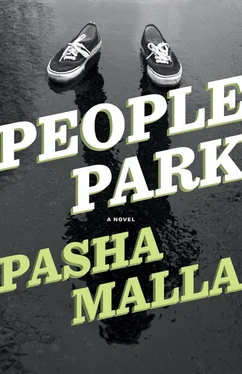
 T EIGHT-THIRTY a Yellowline train dumped the Pooles into Mount Mustela, a neighbourhood known for okay restaurants and furshops and Bookland, the city’s oldest bookshop, said Kellogg’s CityGuide. From the platform the escalator lowered him and Pearl and Gip and Elsie-Anne, conversing with her purse, while Kellogg enthused, How about that train , eh, guys? Can you believe there’s no one driving those things, pretty amazing. You want to talk magic? And those moving sidewalks — just whoop, all aboard! And off you go.
T EIGHT-THIRTY a Yellowline train dumped the Pooles into Mount Mustela, a neighbourhood known for okay restaurants and furshops and Bookland, the city’s oldest bookshop, said Kellogg’s CityGuide. From the platform the escalator lowered him and Pearl and Gip and Elsie-Anne, conversing with her purse, while Kellogg enthused, How about that train , eh, guys? Can you believe there’s no one driving those things, pretty amazing. You want to talk magic? And those moving sidewalks — just whoop, all aboard! And off you go.